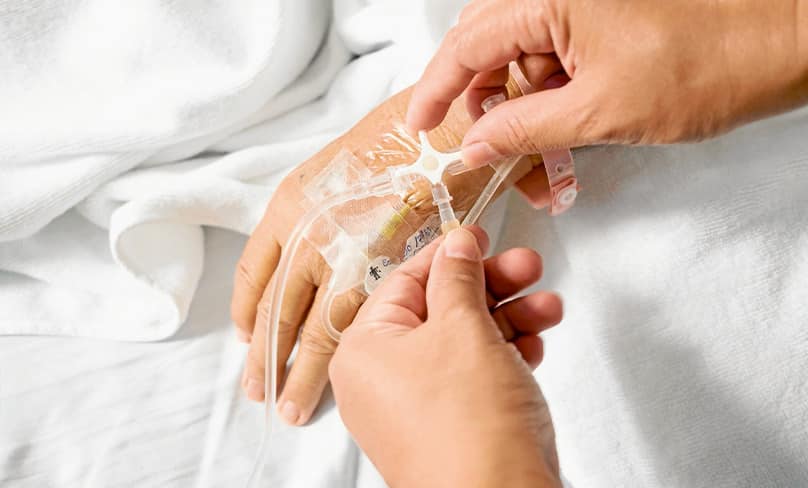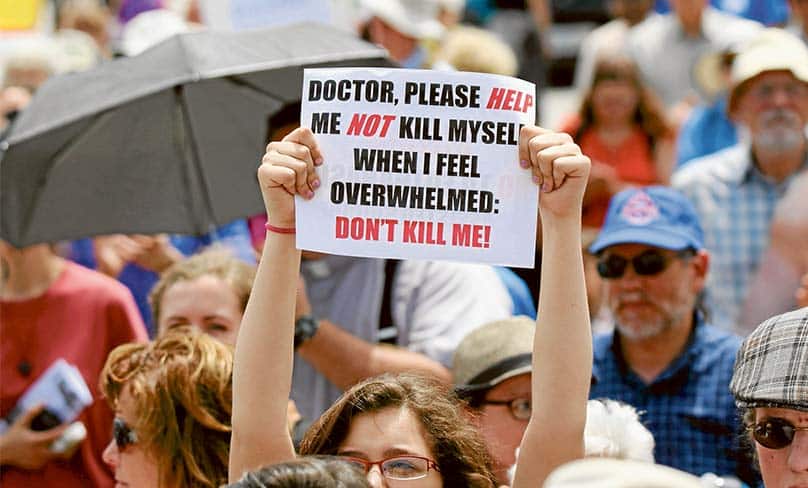
Proposed plan would extend to persons without a definite prognosis
A proposed assisted suicide regime in Queensland which would be the country’s most radical has been roundly condemned by advocates and faith leaders.
Queensland’s parliamentary health committee report examining end-of-life issues was tabled on March 31.
It recommends widening the scope of accessibility and lowering important safeguards, including that it not only apply to the terminally ill expecting to die within six months, as is the case in Victoria and from July 2021, Western Australia.
Rather, any adult permanent Queensland resident could be considered who has “an advanced and progressive terminal, chronic or neurodegenerative medical condition that cannot be alleviated in a manner acceptable to the person, and that the condition will cause death”.

The report also recommends that no counselling be required and that a person with a mental illness is not disqualified from accessing assisted suicide or euthanasia.
Archbishop of Brisbane Mark Coleridge said that the recommendations came as no surprise “given the cultural tide of this time and the resources invested by the supporters of physician-assisted suicide”.
‘Dark irony’ in the timing
“But there is a dark irony that these recommendations appear at a time when the COVID-19 crisis is casting the shadow of death across the planet – and with these recommendations and any legislation that may follow from them that shadow grows darker,” he told The Catholic Leader.
He noted that the report was tabled at a time when suicide rates in Australia had reached an alarming level. “Now it is proposed that suicide become an acceptable option in law, and one wonders what signal this sends,” he said.
The Australian Catholic Bishop’s delegate for euthanasia Bishop Tim Harris said that the fresh impetus for debate on assisted suicide during the coronavirus pandemic was like “rubbing salt into the wound”.
“Here we are talking about preserving life and fighting for life, not taking it away,” he told The Catholic Weekly. “We’ll never be the same again because of where we seem to be going in relation to the assisted suicide legislation being presented to state parliaments around the country.”
The report came in two parts, with the first highlighting a desperate need for better palliative care resources, particularly in remote and regional areas of the state.
The committee heard that regional Queensland had one palliative care specialist instead of the recommended eight, and that nurses in aged care homes have no palliative care training.
The report recommends that in remote and regional areas where there are insufficient doctors, that registered nurses be able to oversee the process including administering a lethal drug subject to the Health Minister’s consent.
Director of HOPE Branka van der Linden said that the report’s conclusions, which came after a 15-month inquiry, were “deeply problematic”.
Reduced safeguards
“The committee has sought to rectify the inequality of access to doctors in rural and remote Queensland not with seeking to invest in more resources and provide incentives for doctors to work in these areas, but rather to lower the bar in terms of safeguards for those in regional and remote areas of the state, many of whom are First Nations peoples,” she said.
Bishop Harris said it was a “disgrace” that quality palliative care is still out of reach for so many people in end of life situations in remote and regional areas. “The response being offered is, rather than try to properly address that problem, let’s help people to access assisted suicide,” he said.
“People will seek to push the envelope further”
“In practice this means the scheme could include a range of conditions that could ultimately be terminal but may be curable or managed, like diabetes. Persons with episodic mental illness can access the scheme if they have a decision-making capacity, which might include many persons with clinical depression.
“All of these extensions to the Victorian scheme reduce safeguards and increase the risk to the vulnerable associated with euthanasia.”
The report recommends that conscientious objection by medical professionals be allowed only so long as the “rights of patients to access the scheme are also protected”.
“Governments will defend their respective legislation, but we all know from overseas experience that there are loopholes everywhere,” said Bishop Harris. “Once a thing is established there will be people seeking to then push the envelope further.”
Related articles:
Monica Doumit: From bad to worse on euthanasia
Sisters’ struggle reveals risk to disabled
